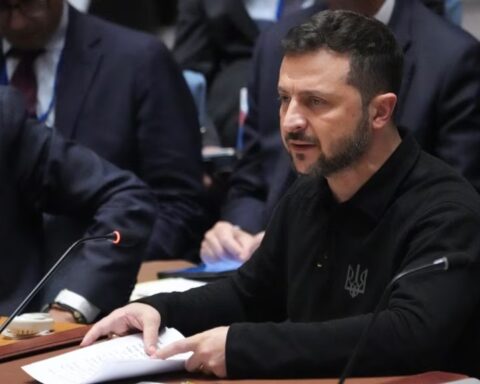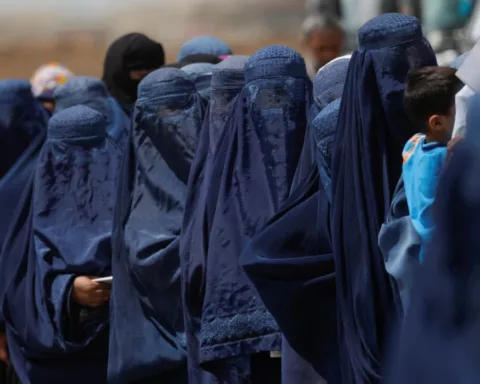Preventing and averting crises
The Peacebuilding Commission was established in 2005 with the mandate to bring together all relevant sides to marshal resources and advise on integrated strategies for post-conflict peacebuilding.
Through the Peacebuilding Fund, the UN responds to and prevents violent conflict by supporting governments and societies in at-risk countries.
For example, during the pandemic, Fund projects have supported the protection of female health personnel, women leaders and human rights defenders in Colombia. Women migrants from Venezuela, who are at greater risk of sexual and domestic violence during lockdowns, also received assistance.
“We know that prevention works, and that in addition to averting multiple associated crises, it can save lives and dramatically reduce human suffering,” Commission Chair Bob Rae told participants.
“We also know that it is cost-effective. As outlined in the UN-World Bank joint study Pathways for Peace, a system for preventing the outbreak of violence would save at a minimum close to $5 billion per year.”
Messages of peace written by children are placed in communes in the city of Medellín in Colombia.UN Verification Mission in Colombia
Messages of peace written by children are placed in communes in the city of Medellín in Colombia.
The ‘persistent challenge’ of funding
The Peacebuilding Fund is seeking $180 million for this year, and demands are outpacing resources.
While the Secretary-General underscored the Commission’s leadership in uniting various stakeholders, the meeting sought to address what he labelled the “persistent challenge” of ensuring predictable and adequate financing for peacebuilding efforts.
“We need concrete action,” Mr. Guterres stated. “This remains more important than ever in the context of COVID-19, which has devastated communities and economies throughout the world, reversing development and peacebuilding gains and aggravating conflicts or fomenting new ones.”
Proposals to increase funding
The Secretary-General outlined ways to step-up funding.
In addition to his call for voluntary contributions from UN Member States, Mr. Guterres has previously proposed using funds from UN peacekeeping missions that are in the process of winding down.
This would see the equivalent of 15 per cent of a mission’s final full-year budget going to peacebuilding activities for two consecutive years following the end of its mandate.
“Programmatic funding to support mandated peacebuilding activities in peacekeeping settings is essential, especially to ensure their continuation following a mission’s closure,” he continued.
“And it remains critic al that we ensure a dedicated minimum of 15 per cent of all UN-managed funding in support of peacebuilding projects to advance gender equality and women’s empowerment – and that Member States contribute specifically in this area, where resources are scarce but the impact great.”
The UN chief also urged donors to “reverse a worrying trend” by committing to spend at least 20 percent of foreign aid on peacebuilding priorities in conflict settings.
He also praised recent action on expanding financing, including by the World Bank and the African Development Bank, and pointed to the need for greater partnership with the private sector.






